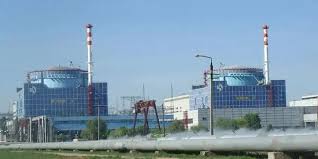Bulgaria unexpectedly rejects sale of Russian nuclear reactors to Ukraine

Sofia: Bulgaria has decided unexpectedly against selling its two unused Russian nuclear reactors to Ukraine, a last-minute reversal driven by pressure from the pro-Russian Bulgarian Socialist Party (BSP).
“We were adamant from the start that these reactors are not for sale. They are a key asset for Bulgaria – part of our energy security and economic independence,” said BSP leader Atanas Zafirov, who also serves as deputy prime minister.
The two Russian VVER-1000 reactors, along with four steam generators and four circulation pumps, have been stored for years at a site near the Danube River after Bulgaria abandoned plans to build the Belene nuclear power plant. Instead, authorities in Sofia opted to construct two new nuclear units at Kozloduy NPP using U.S.-designed AP1000 technology from Westinghouse, with South Korea’s Hyundai tapped as the builder.
Ukraine had sought to purchase the Russian reactors from Bulgaria, as it possesses the infrastructure to complete the Khmelnytskyi nuclear power plant, which is compatible with the same reactor type. The proposed price was just over €600 million, and Ukraine’s parliament even passed legislation greenlighting the acquisition.
In February 2025, Boyko Borissov, leader of the GERB party and a pivotal figure in Sofia, confirmed the sale of the reactors. He initially predicted that the pro-Russian BSP would not obstruct the deal, touting it as a financial win for Bulgaria, a country unable to use the reactors itself, with proceeds set to bolster the state budget.
However, on Tuesday, 15 April, BSP leader Zafirov announced a unified government stance: “We have a collective decision regarding the fate of the two reactors—they will not be sold. This is a decision supported by all coalition partners. I thank our partners for standing united behind this strategic choice.”
Zafirov insisted Bulgaria has sufficient expertise and a prepared site to build a second nuclear power plant, despite the government’s long-standing abandonment of the Belene project, which saw over €1 billion spent with no tangible results.





